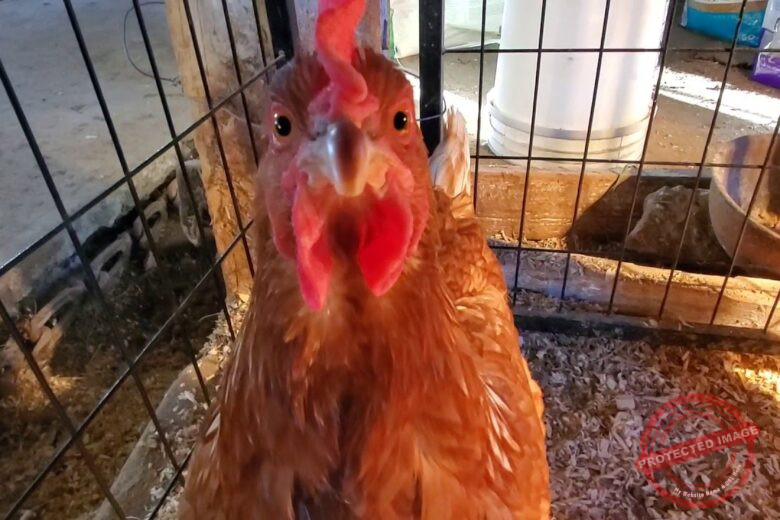If you’ve ever raised chickens in your backyard, you know that every breed has its own personality. Some are fussy. Some are calm. Some are egg-laying machines.
But then there’s the Cinnamon Queen chicken — the no-drama, hard-working lady of the coop. She’s like that reliable neighbor who always shows up with a smile and fresh cookies.
Whether you’re just getting started with backyard chickens in the U.S. or adding to an existing flock, you’ll want to know why so many farmers are falling in love with these birds.
10 Cinnamon Queen Chicken Facts
Let’s dig into 10 interesting facts about Cinnamon Queen chickens that make them a true American favorite.
1. They’re an All-American Hybrid
Cinnamon Queen chickens were developed right here in the United States, created by crossing a Rhode Island Red rooster with a Silver-Laced Wyandotte hen.
This combination gives you a hardy, early-maturing bird that thrives in most U.S. climates — from chilly northern states to hot southern backyards. They’re not a traditional heritage breed, but they sure have the heart of one.
2. Egg-Laying Machines (and Then Some)
These hens are famous for their egg production. A healthy Cinnamon Queen can lay around 250 to 320 large brown eggs per year. That’s nearly an egg almost every day!
If you live in areas like Texas, Ohio, or North Carolina, you’ll appreciate how well they keep laying even when the temperature shifts. Many backyard keepers say their Cinnamon Queens lay better than any breed they’ve ever had.
3. Early Bloomers — They Start Laying Fast
One of the most exciting things for new chicken keepers is waiting for that first egg. With Cinnamon Queens, you won’t be waiting long. These girls often start laying as early as 16 to 18 weeks old, earlier than most standard breeds.
That means faster returns on feed costs — a big plus if you’re raising them for both fun and function.
4. Calm, Curious, and Friendly
If you’re raising chickens around kids, or you just want hens that don’t act like you’re the enemy, you’ll love their temperament. Cinnamon Queen hens are gentle, sociable, and curious.
They’ll often follow you around the yard, waiting for treats or a chance to be hand-fed. In fact, some folks in small-town America treat them almost like pets. They don’t peck much, and they integrate easily with other breeds.
5. Tough Birds That Handle U.S. Weather
From the cold winters of Minnesota to the hot summers of Florida, Cinnamon Queens adapt easily. Their Rhode Island Red genetics make them cold-hardy, while their hybrid vigor helps them handle heat better than pure breeds.
Just give them shade, fresh water, and a good breeze in the coop — they’ll keep producing no matter the season.
6. Beautiful Rusty Feathers That Shine in the Sun
You can spot a Cinnamon Queen a mile away thanks to her rich cinnamon-colored feathers. They glisten under sunlight and make your backyard flock look like a scene from a country magazine.
Roosters usually have white feathers with red highlights, while hens have that classic reddish-gold tone that inspired their name.
7. They’re Great for Beginners
If you’re just starting your chicken journey, this breed is one of the best introductions you can have. They’re low-maintenance, disease-resistant, and forgiving if you make a few rookie mistakes.
Feed them quality layer pellets, offer calcium (like crushed oyster shell), and keep their bedding clean — that’s about it. They don’t require fancy conditions to thrive.
8. Dual-Purpose Birds (Eggs and Meat)
Although most folks raise Cinnamon Queen hens for eggs, they’re also a solid dual-purpose breed. Mature hens weigh about 5–6 pounds, while roosters can reach 7–8 pounds.
If you’re into self-sufficiency or small-scale homesteading, they’re a good fit for both eggs and meat production — which is why many American homesteaders keep them year-round.
9. You Can Find Cinnamon Queen Chickens for Sale Easily
Here’s another reason Americans love them: availability. You don’t have to hunt down rare breeders. You can find Cinnamon Queen chickens for sale at most major U.S. hatcheries like:
-
Murray McMurray Hatchery
-
Hoover’s Hatchery
-
Cackle Hatchery
-
Meyer Hatchery
You can even buy chicks online and have them shipped safely right to your local post office — yes, baby chicks travel by mail in the U.S. all the time!
10. They’re Quiet and Coop-Friendly
Unlike some noisy breeds that crow at the slightest breeze, Cinnamon Queens are relatively quiet. They make gentle clucks and soft coos — perfect if you have neighbors close by.
If you live in suburban areas or small towns where noise rules exist, these hens are a great pick. They’re happy in coops, runs, or even free-ranging across the yard.
Bonus: How to Keep Cinnamon Queens Happy
Want to get the best out of your hens? Here’s a simple, no-fuss approach most American backyard farmers follow:
-
Feed: Layer feed with at least 16% protein
-
Calcium: Add oyster shell or crushed eggshells
-
Water: Always clean and cool
-
Dust baths: A mix of sand, dirt, and a pinch of wood ash keeps parasites away
-
Coop space: About 4 square feet per bird
-
Free range time: As often as possible — they love to forage
A little care goes a long way. Keep them clean, safe, and well-fed, and they’ll repay you in dozens of brown eggs and good company.
Final Thought
If you’re building or expanding your backyard flock anywhere in the U.S., the Cinnamon Queen chicken deserves a spot. They’re dependable, friendly, beautiful, and built for the American homestead lifestyle. Whether you’re in the suburbs of Oregon or the rolling farmlands of Kentucky, these birds will fit right in.
They’re proof that you don’t need a fancy heritage breed to enjoy the rewards of chicken keeping — just a good, honest bird that shows up for you every single day.
So, what’s stopping you from bringing a few Cinnamon Queens home this season?
